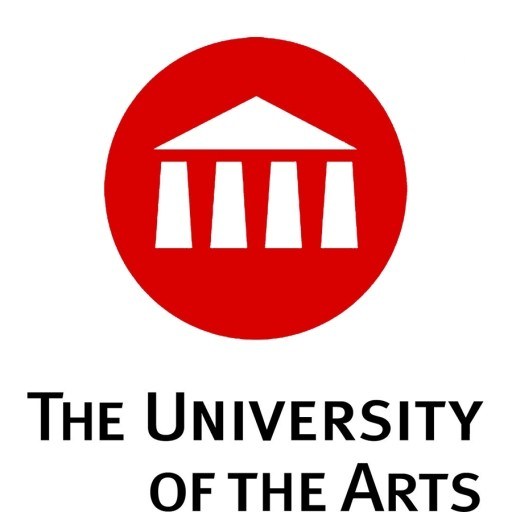Students seeking a two-year Master of Architectural Design and Urbanism (M.ADU) post-professional degree must hold an accredited professional degree in architecture (B.Arch or M.Arch) or the international equivalent. This degree offers students with a professional degree an opportunity to further develop their design and critical thinking skills in the disciplines of classical architecture and traditional urban design.
The studio course work consists of:
- a foundational first semester
- two semesters of studio work (one in Rome) in the student's selected concentration
- and a terminal design project in the student's fourth semester
39 credit hours are required for graduation while a maximum of 48 credit hours may be earned.
With a Concentration in Classical Architecture
Summer Session
- ARCH 61011 Introduction to Architectural Representation (0 credit hours)
Total Credit Hours: 0
Fall (First Term)
- ARCH 71111 Elements & Principles of Classical Architecture (Studio) (6 credit hours)
- ARCH 70211 History of Rome (3 credit hours)
- ARCH 70311 Urban Elements & Principles (3 credit hours)
Total Credit Hours: 12
Spring (Second Term)
- ARCH 71141 Classical Architecture I (Studio) (6 credit hours)
- ARCH 73321 Architectural Treatises (3 credit hours)
- Optional Elective Course (3 credit hours)
Total Credit Hours: 9-12
Fall (Third Term) - Rome
- ARCH 84152 Classical Architecture II (Studio) (6 credit hours)
- ARCH 84211 Architectural History of Rome (3 credit hours)
- ARCH 84312 Italian Classicism (3 credit hours)
Total Credit Hours: 12
Spring (Fourth Term)
- ARCH 81161 Terminal Design Project (Studio) (6 credit hours)
- Optional Elective Course (3 credit hours)
- Optional Elective Course (3 credit hours)
Total Credit Hours: 6-12
Total degree credit hours required: 39 minimum-48 maximum
With a Concentration in Urban Design
Summer Session
- ARCH 61011 Introduction to Architectural Representation (0 credit hours)
Total Credit Hours: 0
Fall (First Term)
- ARCH 71111 Elements & Principles of Classical Architecture (Studio) (6 credit hours)
- ARCH 70211 History of Rome (3 credit hours)
- ARCH 70311 Urban Elements & Principles (3 credit hours)
Total Credit Hours: 12
Spring (Second Term) - Rome
- ARCH 74142 Urban Design I (Studio) (6 credit hours)
- ARCH 74211 Urban History of Rome (3 credit hours)
- ARCH 74322 Italian Urbanism (3 credit hours)
Total Credit Hours: 12
Fall (Third Term)
- ARCH 81151 Urban Design II (Studio) (6 credit hours)
- Optional Elective Course (3 credit hours) (ARCH 83321 A Survey of Form-Based Codes)
- Optional Elective Course (3 credit hours)
Total Credit Hours: 6-12
Spring (Fourth Term)
- ARCH 81161 Terminal Design Project (Studio) (6 credit hours)
- ARCH 83311 After Urbanism (3 credit hours)
- Optional Elective Course (3 credit hours)
Total Credit Hours: 9-12
Total degree credit hours required: 39 minimum-48 maximum
Note: International students who elect to join the post-professional M.ADU program are affirming that they have achieved their country's professional degree—sufficient to test for or to be granted a license there. Those students wishing to become licensed in the United States should note that the M.ADU post-professional degree is not accredited and therefore not sufficient to qualify for testing in the U.S. based on the National Council of Architectural Registration Boards (NCARB) criteria. These students may wish to either seek review of their educational and professional credentials by NCARB (www.ncarb.org) or to join one of the professional degree programs, again, dependent upon their educational background.
- Online Application.(Please note that while the online application site is hosted by Notre Dame's Graduate School, all application materials will be processed and evaluated by the School of Architecture's Graduate Admissions Committee.)
- Resumé or Curriculum Vitae
- Statement of Intent. The statement of intent is an opportunity for the applicant to express themselves directly. This statement can take many forms, but should include some combination of what the applicant believes about architecture/urbanism/community/etc., why the applicant wishes to engage in graduate studies in architecture/urban design/historic preservation, why the applicant wishes to be a part of this program in particular, what led the applicant to this point, and what the applicant wishes to do with his or her career.All post-professional (M.ADU/Path A) and 2-year professional (M.Arch/Path B) applicants must include an indication of their chosen concentration in either Classical Architecture or Urban Design.
- Three (3) Letters of Recommendation. At least one letter should be from a former instructor or academic advisor/mentor. If the applicant has worked in a design firm or similar professional environment, at least one letter should be from an employer or supervisor. In any case, these letters should be from persons who can speak directly to the applicant's character and abilities. Recommenders are asked to submit the letter directly to the School online and are likewise asked to complete a short online survey, accessible once they are officially listed as a recommender by the applicant.
- Portfolio of Work. All applicants are required to submit a portfolio of their work from academic experience, professional experience, independent projects, etc. 3-year professional degree (M.Arch/Path C) applicants without an extensive body of work or experience in the discipline should submit materials that offer a sense of the student's logic/clarity of thought in terms of submission layout/organization and their ability to draw—or an ability to learn to drawn. Projects in a variety of media may be submitted, but at least some hand-drawn/painted work should be included. A hard copy of the portfolio must be sent for use in admissions committee deliberations. Please do not send any original work—reproductions only. It is requested that portfolios have a maximum size of 11x14 inches. Portfolios (with self-addressed return package and sufficient postage if return of the portfolio is desired) should be directed to Admissions Committee. Additionally, a PDF copy of the portfolio should be sent to Carol Kraus at ckraus@nd.edu.
- Transcripts from all undergraduate and previous graduate institutions. Applicants may submit an unofficial transcript for the purposes of admissions review, but will be required to submit an official transcript from all previous institutions prior to matriculation. International applicants with a foreign language transcript should include an original language copy and official (i.e. notarized) English translation of each transcript. Applicants still in the midst of a program of academic study should provide an official copy of their latest transcript with their application. If accepted, incoming students must then submit an official copy of their final transcript immediately after graduation.
- The School of Architecture does not list a strict minimum GPA for admission, but does see an applicant's GPA in a previous course of study as one indicator of academic performance for the future. Generally, the Admissions Committee seeks a GPA of 3.0 or higher on a 4.0 scale.
- GRE Scores - General Test (Verbal, Quantitative, Writing).GRE scores reported must result from tests taken within the last five years. Exceptions might be made for GRE scores used to enter a previous graduate program, however all applicants must report GRE scores. Test scores should be ordered and sent by the testing service to the University of Notre Dame, institution code 1841. To expedite the review process, applicants may also upload preliminary (unofficial) scores until official ones are available.The School of Architecture does not require a strict minimum GRE score, but generally would expect a score of 308 (1200 under the old scoring system) and would find it difficult to consider someone submitting a score below 300 (1000 under the old scoring system).The equivalency to a score of 1200 or 1000 can vary somewhat depending on how one combines a higher or lower score between the verbal and math portions, so the Admissions Committee does take both old and new scores into account. All scores submitted are converted and both score calculations on the old and new scale are listed in applicant files to aid in admissions committee discussions.
- TOEFL or IELTS Scores International Students only.The University of Notre Dame recommends a minimum score of 7.5 (TOEFL) or 100 (IELTS) and the School of Architecture graduate programs do as well. Students in the 2-year post-professional program must serve as teaching assistants, a duty which may include grading papers and written tests or offering design critiques for undergraduates. For those in the 2-year or 3-year professional degree or historic preservation programs, taking technical lecture courses can prove difficult for those without a high level of comfort in English. TOEFL or IELTS scores reported must result from tests taken within the last two years.
Scholarships
M.ADU post-professional (Path A) students receive financial support in the form of stipends and full-tuition scholarships through teaching assistant positions and fellowships including the Bond-Montedonico Fellowship program, the Joseph Z. Burgee and Joseph Z. Burgee Jr. Fellowship program, the James A. Nolen Jr. Fellowship, and the Joseph M. and Virginia L. Corasaniti Architecture Fellowship. Requirements for M.ADU students receiving stipends are comprised of three semesters—the three semesters spent in South Bend—serving as teaching assistants with additional office/program support duties required on an as-needed basis during the Rome semester. (As a teaching assistant, a student is expected to attend all class meetings and, depending on the nature of the course, will be asked to lead discussion groups or study sessions, assist with grading, and/or provide studio desk crits.)







